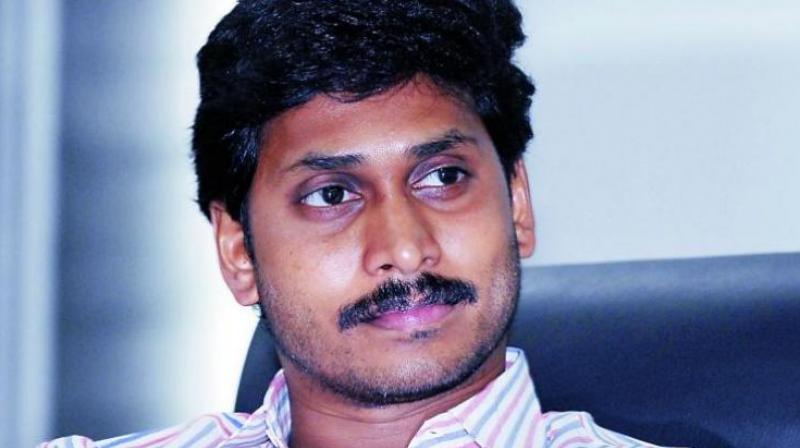Government changed policy to convert KSEZ

Vijayawada: Infra giant GMR group has landed in a peculiar situation following Chief Minister Y.S. Jagan Mohan Reddy’s decision to unravel the alleged corrupt practices of the previous Telugu Desam government in awarding irrigation contracts and infrastructure projects.
Based on the findings, the Chief Minister said the government would initiate action against persons whose decisions drained the public exchequer.
A study of official documents clearly establishes that Mr Naidu blatantly ignored the recommendations of the infrastructure and investment (I&I) department and queries raised by the finance department, in order to favour the GMR group in the Bhogapuram airport project.
The Airports Authority of India (AAI) offered 30.2 per cent revenue share against GMR's offer of 21.6 per cent in the first round of bids for the airport. Besides, the Central agency was ready to pay lease for the land and offer equity to the state government.
Mr Naidu, who also headed the I&I department, decided to call for fresh tenders.
The then Chief Minister came up with new features like MRO facility and new clauses like experience in real estate development to shunt AAI out of the bidding process.
“We noted in the file that AAI be given the project. Later, we also brought to the CM’s notice AAI’s preparedness to take up additional components. We recommended that separate agreements can be concluded with AAI for additional features,” a former I&I official pointed out.
In the second round of bidding, GMR offered the highest bid of `303 per passenger of the User Development Fee collected, that too 10 years after commencement of the project. There was no offer of share in total project revenue. “The finance department raised several queries on the new model but they remained unanswered,” the official said.
GMR also got the previous government to convert its proposed captive port in Kakinada SEZ (KSEZ) to a commercial port as the company found the earlier model unviable. The government here too ignored the consultant's report, which said that the government stands to gain more in the captive port formula than the commercial model.
The government changed the policy to facilitate conversion and chose the Swiss Challenge method, which is notorious for being the model governments opt for to help a specific bidder. Under this method, the proponent of the project, in this case GMR, will make a financial offer and other companies will be asked to submit counter offers. The project proponent company will have the right to match or even quote a higher price than the counter offer.
GMR has been awarded the KSEZ commercial port based on the 2.3 per cent revenue share it offered to the government. Those in the know of the KSEZ point out that even former Chief Minister Dr Y S Rajasekhar Reddy flouted rules in bringing GMR into the KSEZ project which was originally mooted by ONGC along with Kakinada deep water port operator.
In the third case involving GMR where it stands as a “witness”, the Naidu government — according to an official note presented to Mr Jagan Mohan Reddy — paid about `300 crore in excess to Lanco and Spectrum power companies, ignoring the relatively cheaper power of GMR Vemagiri.
The officials briefed the Chief Minister that the previous government bought power at `3.70 per unit though the same could have been purchased at Rs 3.29 per unit from GMR Vemagiri. While GAIL agreed to supply gas to GMR, the then state government got the same diverted to Lanco and Spectrum, sources said.

